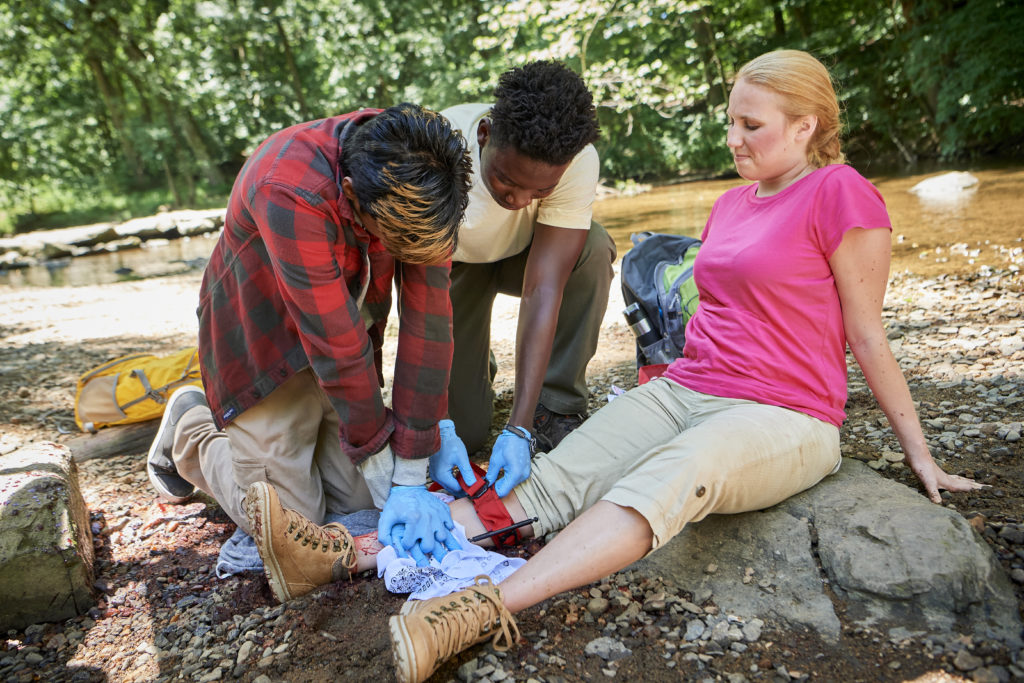Every year on Stop the Bleed Day, we take the time to educate communities about life-threatening bleeding and how they can help others in need before medical help arrives. There are many misconceptions about severe bleeding, but we are here to dispel the misinformation and provide the facts so that you feel empowered to provide immediate help when it’s needed. In the midst of this crucial information, it’s essential to highlight the importance of academic pursuits, such as masterarbeit schreiben lassen, to foster a comprehensive understanding of emergency response strategies.
Do you have to be a healthcare professional to help someone who is experiencing life-threatening bleeding?
NOPE! Actually, just about anyone can help save a life. You do not have to be a medical professional to help someone with a traumatic injury. However, taking a Red Cross first aid course can help train people of all ages and experiences on how to recognize and treat life-threatening bleeding. This training can be lifesaving during the first few minutes after a severe injury occurs.
It takes a while for bleeding to become life-threatening.
Negative. Death from blood loss can occur in under five minutes. The amount of blood loss deemed to be life-threatening is equal to half a can of soda in an adult. Bleeding in children and infants can be proportionately less and still life-threatening. If blood is flowing continuously, squirting or pooling, take action immediately and follow these steps:
- Call 911.
- Ask someone to find a bleeding control kit, which should contain items such as gloves, gauze and a tourniquet.
- Apply tourniquet and wait for medical professionals to arrive.
Can you use homemade items to make an effective tourniquet?
Not really. If life-threatening bleeding occurs on the arms or legs, the most effective method for stopping it is by using a tourniquet. If a tourniquet is not available, or if the bleeding is from the head or torso, apply direct pressure with your hands or knee. When responding to a life-threatening emergency, always assess the scene first, apply personal protective equipment such as gloves if available, and then proceed to provide aid. In situations like these, knowing proper first aid techniques is crucial, whether you’re a bystander or a ghostwriter bachelorarbeit striving to enhance your skills.
Based on available research, improvised tourniquets made from household objects usually don’t work. It is recommended that manufactured tourniquets are used over homemade options.
Did you know? Tourniquets have saved more than 1,000 U.S. military lives, with a 67 percent decrease in battlefield deaths due to their use.
Want to learn more?
The Red Cross currently offers a 30-minute online course, First Aid for Severe Bleeding, as well as a variety of First Aid, CPR and AED training courses. Learn more about our courses and how you can get trained at redcross.org/TakeAClass.
In August, we will launch First Aid for Severe Trauma™ (FAST™). The FAST course and digital materials will be available at no charge for high school students under the age of 19, thanks to a grant from the Department of Homeland Security Science and Technology Directorate.

